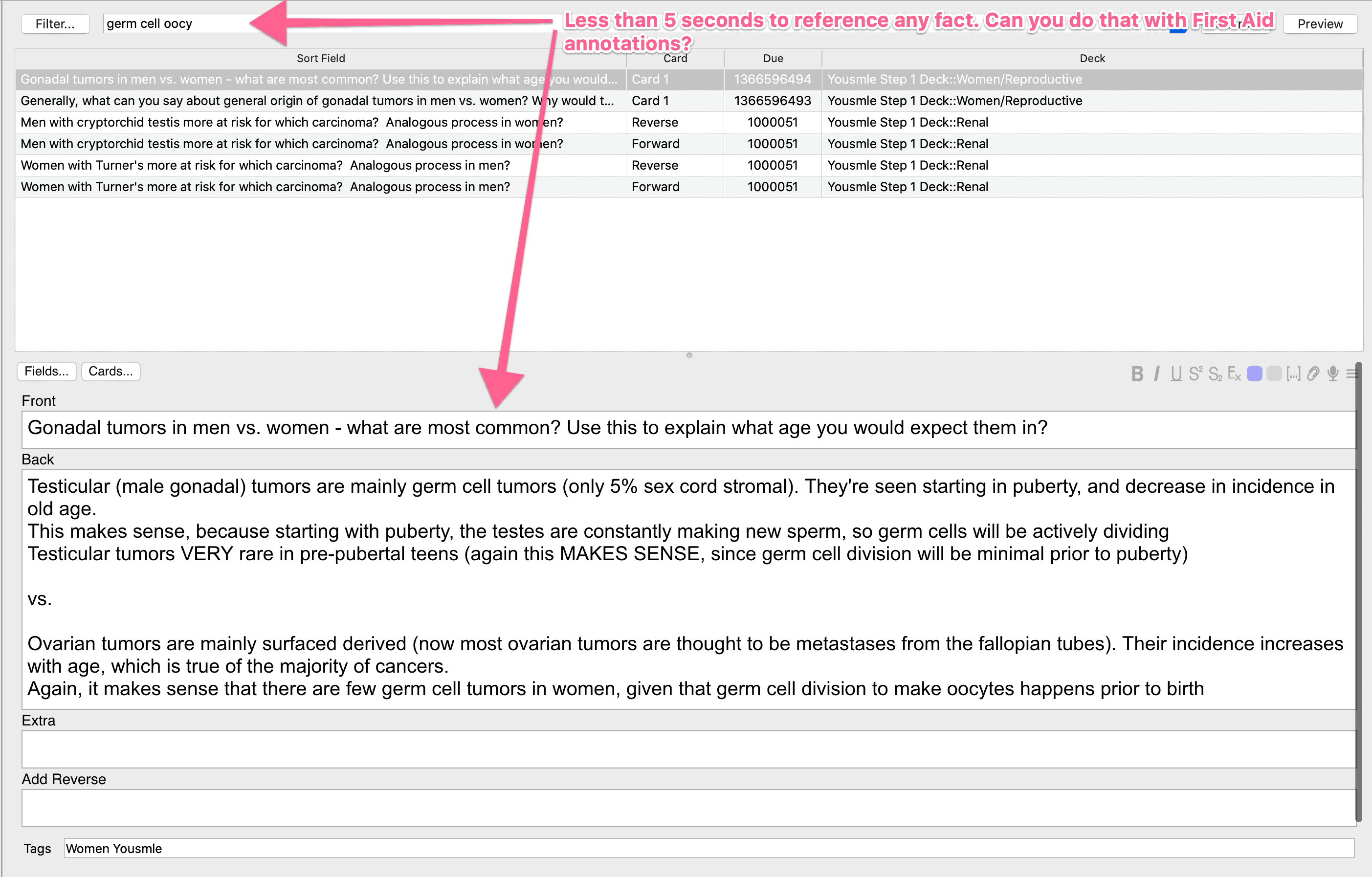How to use it
The art of using Uworld is an intricate one. You cannot just jump headfirst into it. Believe me, I did this in term 5 and regretted it when I closed full blocks of 40 questions because I didn’t know that once created, the tests can never be erased. So even though I hadn’t attempted the questions, they still labelled them as used and reduced the number in the unused set. Even after that, I didn’t take notes properly so when I did my second pass, most of the questions seemed foreign to me
My point is that, don’t experiment too much with uworld, start it with a goal in mind and with the tools that I’m about to share with you
At UWorld, our PA content authors are practicing PAs with extensive clinical experience. We’ve been where you are, and we know how to prepare you for success. Our challenging practice questions and detailed explanations cover every rotation and clinical topic you’ll face on the test and in real-life practice. UWorld's Qbank Mobile App allows you to access your USMLE STEP 1, STEP 2 CK/Shelf and STEP 3 on your Android phone and tablet devices. Please use the 'UWorld Boards' app for ABIM and ABFM Qbanks. This app REQUIRES a valid UWorld USMLE Qbank or Self assessment subscription to access the course material, which can be purchased from UWorld website. UWorld USMLE for PC – Get the last version of UWorld USMLE 2019 for Windows 10, 8, 7, Vista & XP PC 32-bit/64-bit and MAC directly from this site for free now. Get UWorld USMLE App for Windows. Download last version of UWorld USMLE App for PC Windows from the button link on below. UWorld - Account. Please be advised that these are the bare minimum requirements for our software to properly function. The presence of a personal security software, such as AVG, Norton, ZoneAlarm, McAfee, Little Snitch etc. Or network firewall (setup by school, work, hospital, library, or public Wi-Fi administrator), proxy server (setup by school, work, hospital, library, public, or Wi-Fi administrator), VPN.
- Most importantly, Make notes
At the beginning you will most likely be getting a lot wrong since you are not used to pulling information from all corners and also, it will be time consuming. Nevertheless, you must make notes after each question, regardless of it you got it wrong or right. You need to be able to say “why is it not XYZ and why is it ABC”. Here are some tips on making notes.
- Look at the learning objective if the topic seems foreign to you. Write down the main points.
- Read the entire explanation, and write down the train of thought.
- Write down the presentation of it if you are not satisfied by the learning objective information
- Write down the classic presentation of the other answers in the event that it appears as a question later on
After doing this, you have three options, keep it all in a book that you will deem your “smart book” (read the section on smart book), type them up in a doc or a note taking program on your computer or finally write them in your FA next to the specific topic. The choice is yours, either way make sure that you have it.
LEAVE NO QUESTION WITHOUT A PROPER REVIEW
2. Always double check when you make tests
Learn how to make tests with used/unused questions, in tutor/untimed/timed mode. Always put aside a specific amount of time for this, so that you can complete the test without interruption and so that you won’t forget about it later.
3. Start off slow and gradually build up
At the beginning you will most likely do 10 questions in 30-60 minutes, and that is normal. Do not rush this because you want to be able to do this for the entirety of the first pass of the Qbank. You want to have been able to take away something from each question. As you become more adept, you can go through them more quickly and your tolerance will increase and so too, you can do more than 1 block of ten questions. But my advice is to keep it at 10 questions a block and take a 5 minute break after it and go again. Some people say do 15qns or even 20 a block. The choice is up to you, but if your thinking is “I need to do 40 to prepare for the real thing” then stop, during the last 2-3 weeks, all you will be doing is 40qn blocks and that is more than enough time to get used to it. Conversely, during your dedicated time, you can be adventurous and try a 40 question block once for the day and review it later, but again, it’s up to you.
4. Try to do them by systems
When doing the 10 qn block, keep them with the general theme of the section you are doing. Feel free to uncheck the boxes of the sections that you haven’t reviewed yet (eg. Pharm or biostats) since it would not be of use if you have no clue what the question is asking. Once you have read through the section in FA, then you can add them in since at least you will have a foundation on which to build. In the 40 qn block I mentioned above, you can make these mixed/timed.
5. Invest most of your dedicated time into uworld rather than memorizing
There really is no explanation needed here, since the step 1 exam is going to ask you questions rather than ask you facts, so you don’t need to know everything, you just need to know how they want you to think
One thing I would like to mention that you probably have heard a million times, and that is -Uworld is NOT an assessment tool but rather a learning tool.
HOWEVER I will go one step further for those that are not satisfied with this answer (including me)
On your first pass, your percentage correct could range anywhere from 40% and higher and you will have nothing to worry about, as long as you are making proper notes. Gradually you will begin to get more and more correct and adapt a good way of thinking. So basically your first pass percentage holds no meaning so long as you are learning from it and making notes.
On your second pass, you want to be aiming for 70% and higher overall, simply because you have seen the questions already and you should be a veteran at answering them. So your 40qn blocks should be anything from 28/40 and above. This way you know the majority of information and you should be able to deduce why you are getting the questions wrong. If for any reason, you cannot figure out why you get questions wrong, then you need to take some time to assess how you are preparing for step 1
Which mode to use?
By now you should know what the various modes are
Needless to say, always select the “unused” questions, only after you complete the Qbank then you can try the other options for obvious reasons.
Tutor Mode vs Untimed vs Timed
There have been many many many varying opinions on this matter, and the best advice I can give you first up is to know yourself. Some arguments can be nullified if you just know how you adapt and respond to these reasons.
What I did – So during term 5 and first couple weeks of dedicated time, I strictly used tutor mode with 10 question blocks. After that I used timed mode with 40 qn blocks all the way until my exam. Read the following to see why
SO here they are (it goes like this, Tutor mode discussion Vs timed/untimed mode discussion)
You get immediate feedback on a questions. Now this was great for me because I was always eager to see if my thinking was right. I had the drive to know and I always read the entire explanation since it was fresh in my mind. I did this whether or not I got it wrong. I would then make notes immediately and carry on afterwards.
VS.
Waiting until end to get the explanation. This is good if you have a propensity to “tilt” upon getting a series of questions wrong thus becoming upset and subsequently thinking irrationally for the next couple questions (I do admit this happened from time to time, but not as often as you would think and 10 qns is not much to be affected by this). So If you are someone who gets frustrated easily then choose this mode always.
Additionally feedback at the end eliminates the immediate gratification upon answering a question that people argue will not be on the real exam. My problem with this argument is that adapting to no gratification wasn’t a difficult procedure and thus was not a problem for me.

My biggest selling point is this – after doing a block of 10 and waiting until the end to review, I was slightly exhausted and lacked the drive to review it thoroughly so sometimes I would skim the correct questions and not take sufficient notes as compared to doing tutor mode when I was 100% invested in every question and getting the explanation immediately, drove me to want to take notes…..After all, isn’t this the point of doing uworld? To learn from each question?
So now that you have the two sides, you can decide for yourself and please do not let anyone convince you of one way or the other. Always look at the both sides, know yourself and choose the best option
How to use it part 2 – Crunch Time
The reason I have a second part is to address how to use it once you have become a veteran at it and your time is winding down.
At this point you are trying to hone your skills and become a good test taker.
From the point where you start doing only 40 qn blocks, then this section pertains to you.

Uworld On Java
- Make sure you only do timed.
No longer will you do tutor mode since you have outgrown it and chances are you won’t need to review every single question. Now you want to work on your timing and getting as many questions done as quickly as possible.
- Set a goal for yourself

What I mean is that you have 60 mins for 40 questions. You want to have a time where you complete 40 questions before 60 mins. For me, I wanted to be on par with question and time, meaning give 1 minute per question, or rather how many questions I did should be the amount of time used up. So I aimed for completing 40 questions within 40-45 minutes. This gives you enough time to go over marked questions.
Uworld On Ipad
- Use the MCQ progress sheet
If you do not have this, then I will put a link for it. Basically you want to use this to judge where you went wrong, the cause whether it was knowledge, processing or reading the questions and also how you feel about each questions. For me, my main use of it was to put the questions I wasn’t sure about and to review them, regardless of if I got it right and wrong. That way I knew which questions to hone in on.
Then I would note any topics that I needed to review quickly at the end. Some parts of the progress sheet I didn’t fill in because I felt like I knew myself well enough to pinpoint my weaknesses.
Uworld Online
On the back of the sheet, I made my notes and inputted them into the computer at the end of the day.
link – mcq_progress-sheet11